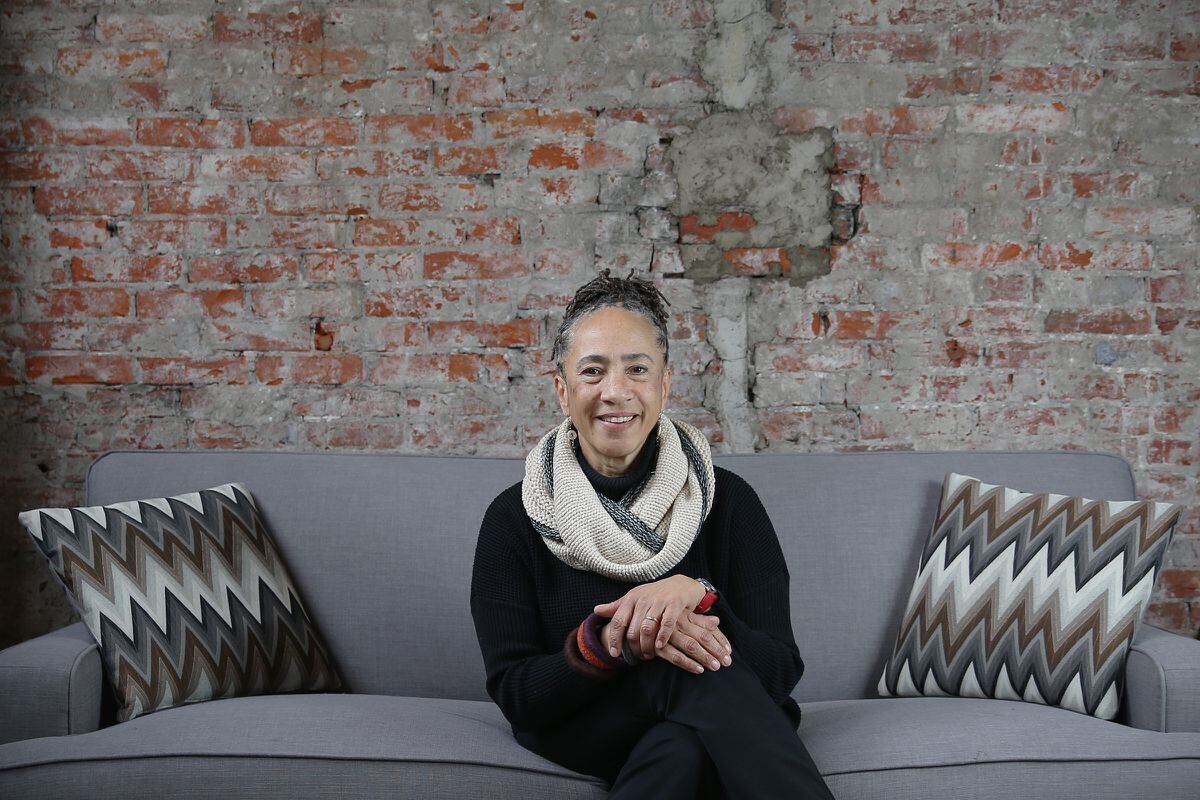
This has been a year like no other. Whether on the front lines of the pandemic as a patient or caregiver, SEPTA driver or Acme cashier — or securely isolated in a home office while supervising Zoom school — we all have a lot to talk about.
Storytelling is how we make sense of our world and all that happens to us, especially at a time as extraordinary as this. And there are so many ways today to get that accomplished: blogs, podcasts, Instagram videos, Facebook posts, Twitter rants, virtual story slams, even old-school newspaper columns and private journals.
Whatever your medium, The Inquirer’s Telling Your Health Story event is here to help.
We started TYHS last year as a way to salute the health-care providers, patients, caregivers, and advocates who for years have contributed their writing to The Inquirer. The idea was simple: bringing these storytellers together with peers to exchange knowledge and experiences.
We had a capacity crowd — 250 writers at the Loews Philadelphia Hotel for a full day of workshops, conversations and connections. We started with a pen-to-paper workshop led by Temple emergency physician and narrative medicine instructor Naomi Rosenberg that was so extraordinary — and popular — that she will be teaching again this year.
One participant later wrote that it was “the absolute best creative-writing exercise I’ve ever tried.”
The storytelling, too, was unforgettable.
The entire room was transfixed as Jerry McCauley, the eminent transplant surgeon at Jefferson, explained what it’s like for a person of color to confront a white-ruled health-care system. Tears welled as Denise Teter and her daughter Victoria spoke about dealing with a vicious hereditary colon cancer — and how going public with their story has helped them cope and find support. Medical students and doctors nodded vigorously in agreement when resident Jason Han explained how writing helps him gain control of the chaos in medicine.
This year, Telling Your Health Story is changing to suit the times. We’ll meet for two half-days (Nov. 13-14), and we will meet virtually. Why two days? First, because Zoom fatigue is real and a full day of virtual learning is just too much. And second, because this year, our friends at First Person Arts and Penn Nursing will be teaching us on Friday the secrets of live, in-person storytelling — and on Saturday we will end the event with our first ever Inquirer Health Story Slam so you can flex those new muscles.
Our 2019 participants told us loud and clear that they want more writing exercises, so we will also have a workshop session with Irene Mathieu, a published poet and University of Virginia pediatrician who trained at Children’s Hospital of Philadelphia. She’ll share how poetry helps her foster compassion and improve communication with patients, and invite participants to do their own reflective writing.
And we’ll explore what many consider the hardest part of writing: letting others read your work, especially when it touches the most intimate and even painful times in life.
One panel will focus on their stories from the still unfolding COVID-19 pandemic. Another will address Philadelphia’s years-long epidemic: the addiction crisis. Physicians will share how they use storytelling to process moments that are harrowing, tragic, moving and self-revelatory.
Our keynote speaker, Philadelphia writer, activist and University of Pennsylvania instructor Lorene Cary, will talk about her caregiving memoir, Ladysitting: My Year With Nana at the End of Her Century, a compelling personal and social history we warmly recommend even if you can’t join us. (By the way, the Arden Theatre’s performance of her acclaimed play My General Tubman, produced pre-pandemic, will be available for streaming starting Tuesday. Preregister at ardentheatre.org.)
You can get more information about Telling Your Health Story at our website: Inquirer.com/TYHS. Even as the pandemic keeps us from sharing pens, meals and the occasional tissue as we did last year, we aim to live up to the expectations of our most enthusiastic participants from 2019. In fact, let’s let them have the last words, because we can’t sum up our purpose any better:
- "This event showed that the art of writing has potential to heal by bearing witness of the afflicted, and by unburdening medical responders who inevitably absorb stories of the damaged and bereaved.”
- It was “exactly what I have been looking for as a source of writing information, inspiration and encouragement.”
- "As someone with cancer who has always believed in the power of storytelling, this day exceeded my expectations on every level. You provided a seamless melding of journalism professionals, storytelling, and diverse medical expertise — representing the richness of Philadelphia, unafraid to articulate inequities, and all while demonstrating the merit of narrative healing.”
The Inquirer’s Telling Your Health Story event, Nov. 13-14, is made possible by Independence Blue Cross and the Lenfest Institute for Journalism. Charlotte Sutton is assistant managing editor, health and business; Kelly O’Shea is deputy health editor at The Inquirer.
"story" - Google News
October 23, 2020 at 05:10PM
https://ift.tt/2TjfHV3
In this year of COVID-19, we all have a story to tell. Get help shaping yours at The Inquirer’s writing worksh - The Philadelphia Inquirer
"story" - Google News
https://ift.tt/2YrOfIK
https://ift.tt/2xwebYA
Bagikan Berita Ini














0 Response to "In this year of COVID-19, we all have a story to tell. Get help shaping yours at The Inquirer’s writing worksh - The Philadelphia Inquirer"
Post a Comment